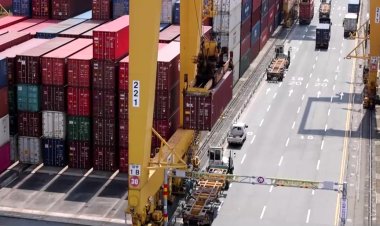On the scrap heap: Syria's 'horrific' child labour

Syria's decade-long conflict forced 15-year-old Mohammad Makhzoum out of the classroom and into a scrapyard, where the orphan works 12 hours a day to support his younger siblings.
Mohammad, who has been working since he was nine, leaves home everyday at dawn for a basic foundry where he helps melt metal amid thick and toxic black fumes.
He said he wanted to make sure his sister and two brothers avoid a fate that has beset so many of Syria's children.
"I am their mother and father," he said, his face covered in soot, speaking from the run-down scrapyard in the northern city of al-Bab.
"I work so that they can continue their studies, because... they shouldn't be denied an education like I was."
An estimated 2.5 million children in Syria are out of school, with another 1.6 million at risk of dropping out, according to the UN's children agency UNICEF.
It estimates that nine in ten children in Syria live in poverty and more than 5,700 children -– some as young as seven -– have been recruited to fight.
There is no official data in Syria on child labour rates. But they are believed to have steadily increased throughout the course of the conflict, with the coronavirus pandemic and an economic crisis fuelling further spikes over the past year.
"It is evident that child labour has increased in Syria...because of Covid-19 and the worsening economic crisis," UNICEF spokesperson Juliette Touma said.
"Children in Syria, when they are involved in labour, are exposed to conditions that are absolutely horrific," she said.
Mohammad, who originally hails from the town of Maarat al-Numan in Idlib district, dropped out of school at the age of nine to support his family after his father was killed by artillery shells fired by government forces.
Two years ago, his mother was killed during a battle between rebels and regime forces in the same area.
He fled with his siblings to al-Bab, where they live in a small bullet-riddled flat, furnished with nothing but thin foam mattresses.















